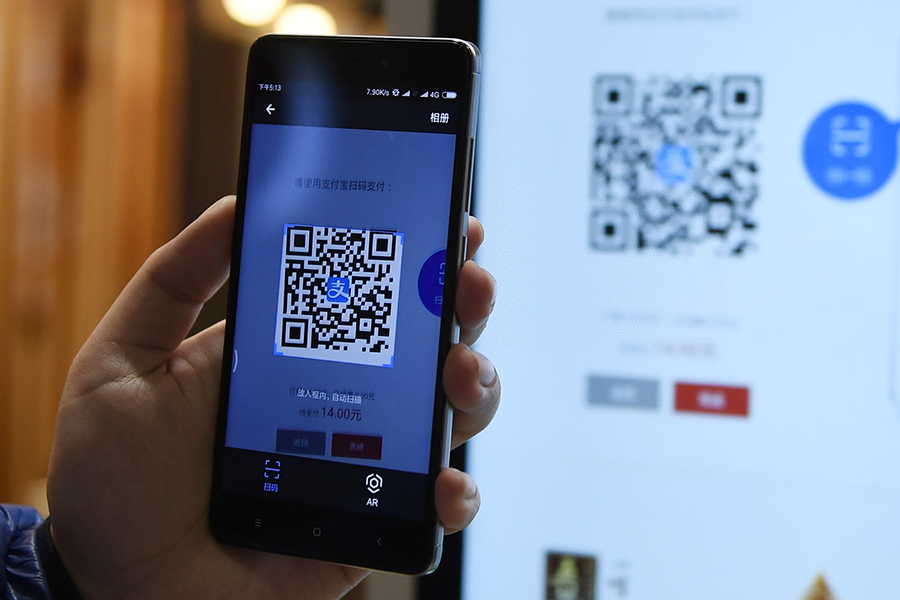Cashless world, digital payments and all that


New Year's here - so, are you ready to embrace a cashless world?
Truth to tell, am not sure if I'm.
The other day, I queued up to pay at a checkout of a Hema Fresh store in Shanghai. I was puzzled when my eyes noticed a change on the signboard. "No cash" changed to "Cash only".
For the uninitiated: Hema Fresh is the supermarket chain brand of Alibaba Group. Its business has expanded fast in China since 2015. It is famous for its fresh fruits, vegetables and seafood, which are all delivered to consumers' homes in an utterly convenient fashion.
Hema epitomizes a new type of retail that is characterized by its "cashless" nature. Customers, be it at the physical stores or online, are required to pay using Hema's own app. Other modes of payments are not acceptable.
Some mobile-savvy consumers find this convenient. But others, particularly the elderly, prefer to pay by cash. And they complained to the monetary authority when, having queued up carrying their shopping bags heavy with fresh food, they were told by the checkout people to pay the bill using the app, not cash.
That incident pretty much sums up the current dilemma facing the monetary system. Mobile devices allow convenient and decentralized ways of transferring money. But this is challenging the traditional bank-centric payment paradigms.
"We encourage diversified payment methods, either innovative ways of payment co-developed with the new retail industry or the cash should be supported. Consumers have their right to choose any way they prefer to pay," said Yu Weiqiang, an official with the Shanghai branch of People's Bank of China, the country's central bank.
On July 12 last year, the central bank declared that the fiat money in China is renminbi, including notes and coins. "Any entity or individual resident should not refuse to receive cash," said a PBOC statement.
A campaign started to accept and handle appeals from aggrieved consumers. Anyone whose cash payments were refused in preference to digital payments could complain.
Retailers and service providers were asked to accept notes and coins. Failure to do so could entail a warning, or even punishment, in terms of administrative measures by the monetary authority, according to the PBOC's regulations.
So far, 602 cases have been investigated, and 558 of them have re-accepted cash.
Cash is still in demand, although incumbent payment service providers are under pressure from startups as well as big tech firms.
Monetary authorities across the globe, it seems, are not exactly in love with the idea of a cashless world. Is it too soon to abandon cash? I wonder.
According to data from the Bank for International Settlements, in 2017, banknotes and coins in circulation in China accounted for 9.5 percent of the total GDP, slightly down from 10 percent in 2016.
"When digitalization is leading payers and payees to demand speedier payments anywhere and anytime, cash is still in demand, and its circulation continues to grow in many jurisdictions," said a recent research report from the BIS.




































